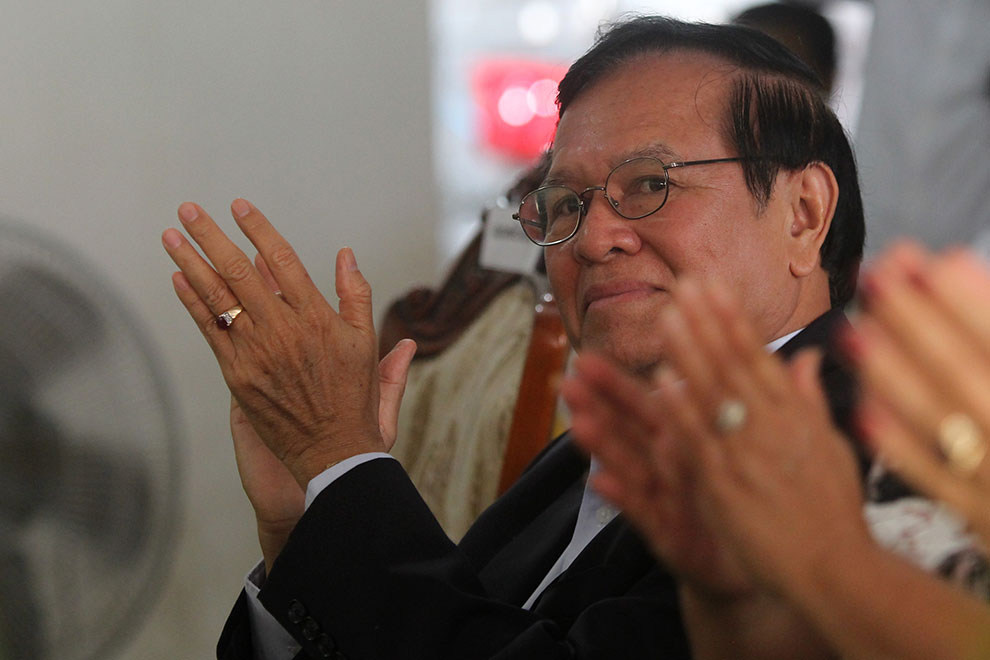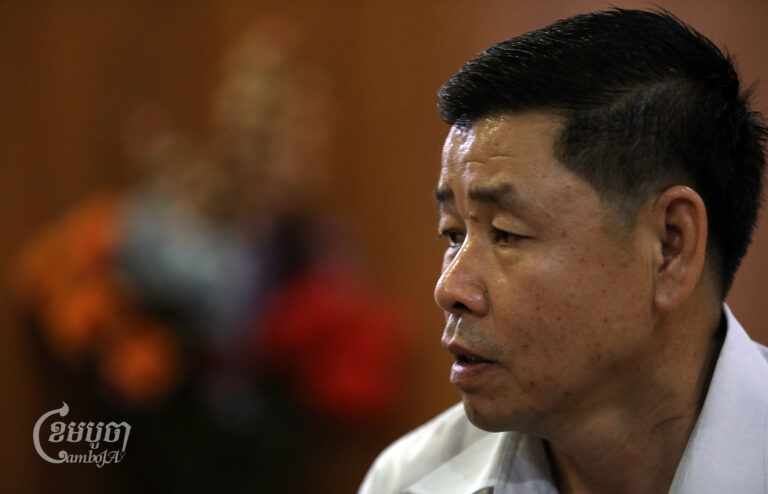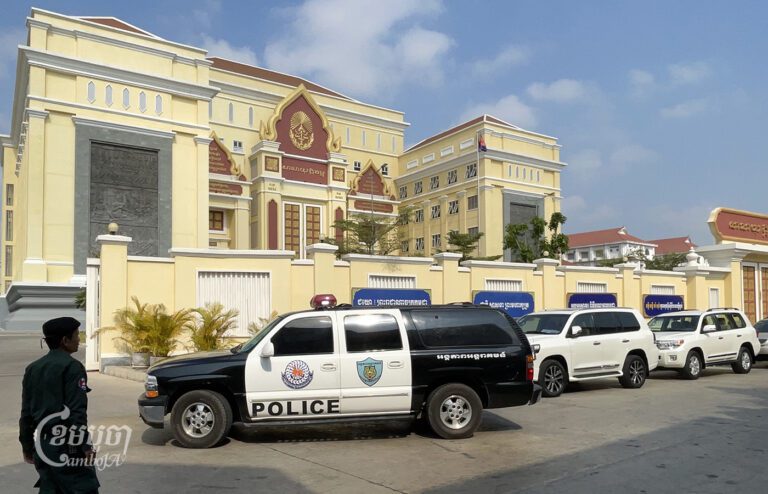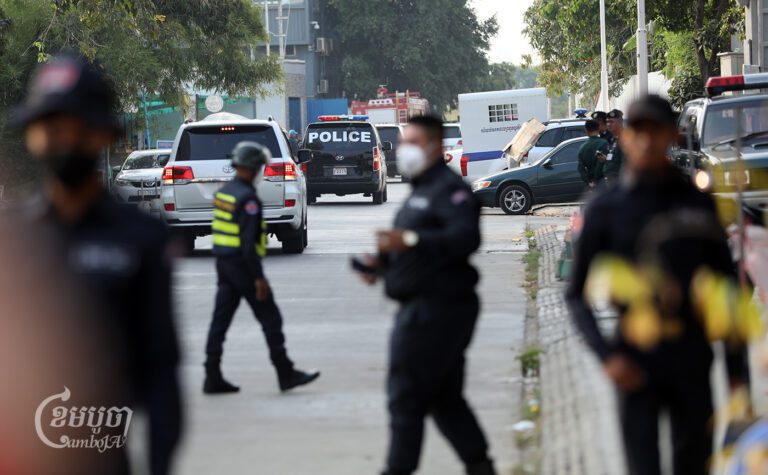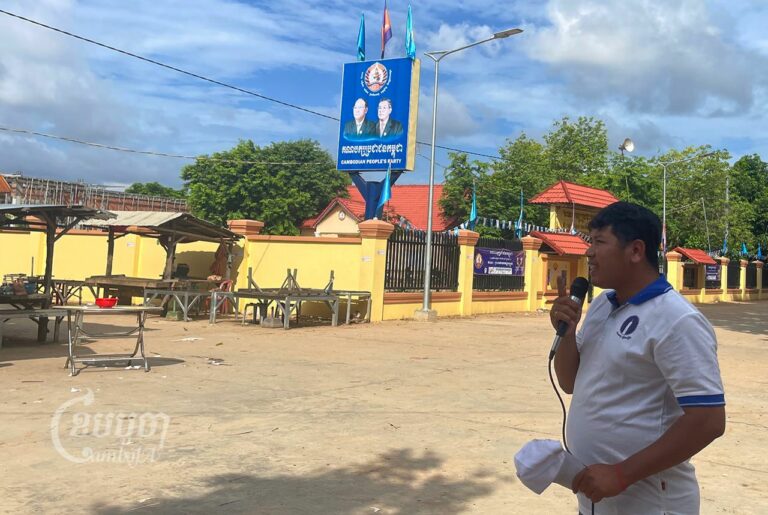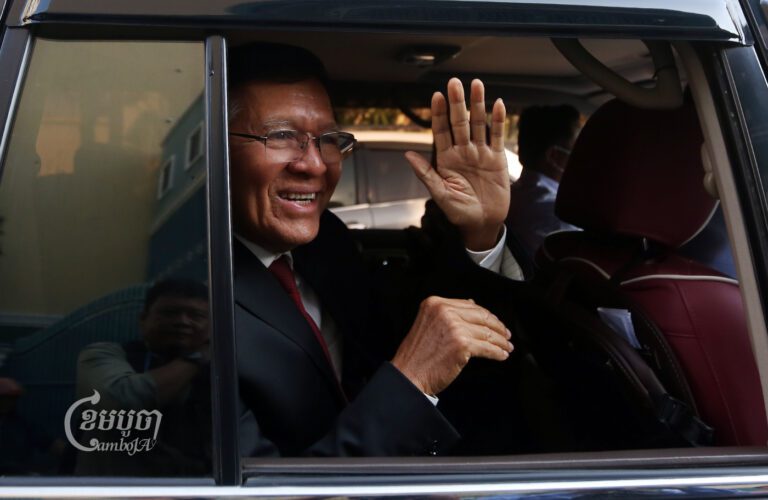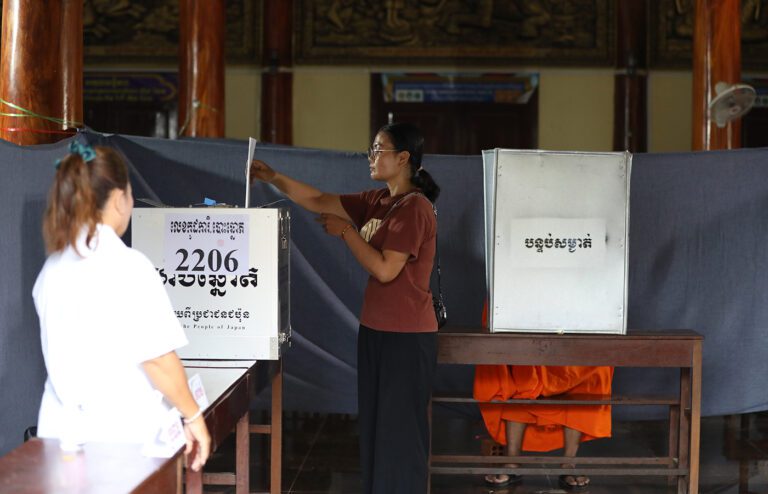The Phnom Penh Municipal Court has capped the number of observers for opposition leader Kem Sokha’s treason trial on Wednesday at 30, raising concerns that no journalists or NGO officers will be allowed to monitor the proceedings.
Embassy and police officials are expected to be given first priority, according to an NGO official, who suggested that the hearing should be live streamed to promote accountability.
In a statement dated Thursday, the court said anyone — whether Cambodian or foreign — wanting to attend Sokha’s trial must register with the court.
The reason was because “the courtroom can hold no more than 30 people, and to ensure the trial process is smooth and there is security and public order,” it said.
Sokha was arrested in September 2017 amid government pressure on the political opposition, NGOs and news media. The Supreme Court dissolved his party, the CNRP, two months later, leading the ruling CPP to sweep all 125 seats in the National Assembly in July last year.
Sokha is accused of working with the U.S. to topple the government, a charge he denies, and faces up to 30 years in prison.
Court spokesman Y Rin said he did not have an update on the registration process for attending the trial. Another spokesman, Suos Vithyarandy, declined to comment.
Soeng Senkaruna, spokesman of rights group Adhoc, said several NGO monitors and journalists had registered on Monday to attend the trial, but were told they would only be informed later whether they had been selected to join.
“We are concerned about this issue,” Senkaruna said. The NGO hoped to monitor the legality of the proceedings, he said.
Though NGO monitors and journalists have so far failed to receive permission to attend, some embassy officials have already been given seats in the courtroom, he added. Police and embassy officials alone would likely fill the 30-person chamber, he said.
“I recognize the courtroom is small, but it is a public trial so the municipal court should have video live outside the court to allow journalists and members of the public who cannot join to listen,” he said, noting that the Khmer Rouge Tribunal broadcasts its hearings online.
There was national and international interest in the case, and it involved politics, raising the importance of proper monitoring, he said.
Sokha’s lawyer Chan Chen could not be reached for comment.
Kim Yuthana, a freelance journalist, said the courts needed to be better prepared for high-profile cases.
“The court needs to undertake reforms together with journalists to promote justice in Cambodia,” he said.
Sokha’s case, which has been before the courts for more than two years, has seen movement since November amid international pressure. The U.S. and EU have urged the government to drop the charges against Sokha, with the EU looking to potentially suspend duty-free trade with Cambodia unless it sees improvements in the country’s political and human rights record. The EU’s decision is due in February.


